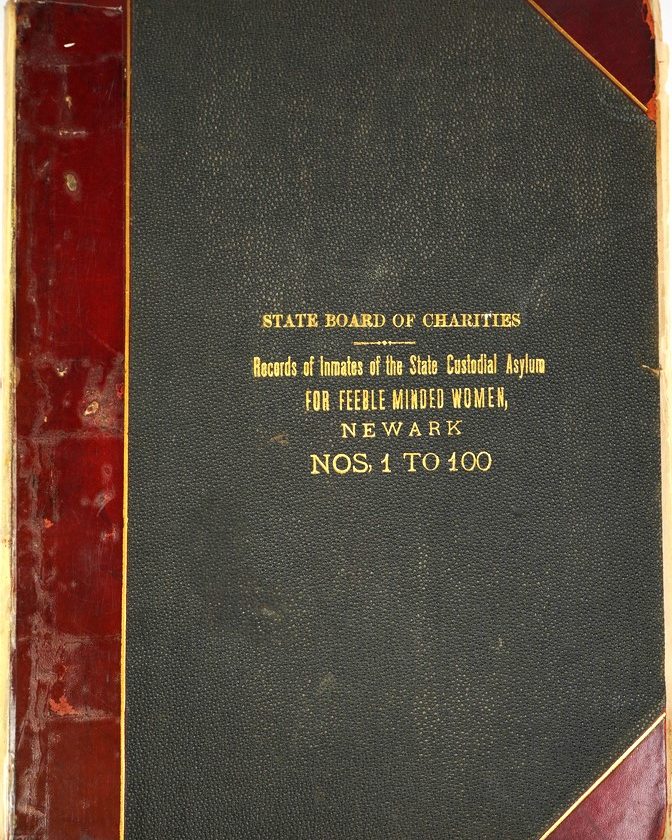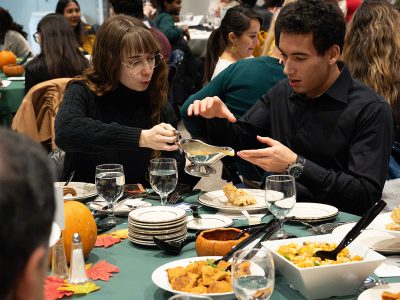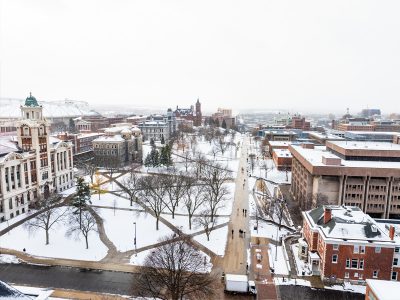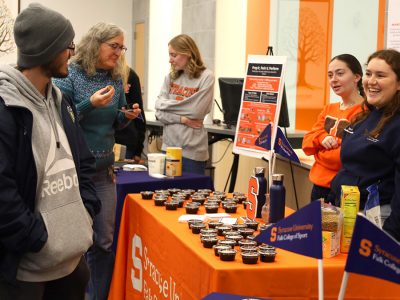Special Collections Research Center Exhibition Shows History's Views on Intellectual Disability
Graduate students in the School of Education turned to primary source documents and artifacts at Syracuse University Libraries’ Special Collections Research Center (SCRC) to discover enlightening—and sometimes startling—information and examples of the ways that people with intellectual disability have been treated over the past almost 180 years in the U.S, particularly in New York State.
The students were part of the Significant Disabilities: Shifts in Paradigms and Practices (SPE 644) course taught by Julia M. White, associate professor in the School of Education, who was the Libraries’ 2023-24 Special Collections Research Center faculty fellow.
The students presented their findings at a public showcase in spring 2024 and their work is available online as a digital exhibition. “From Institutionalization to Inclusion: Disability Activism in the Syracuse University Libraries’ Special Collections” explores disability as a cultural construction by examining historical developments in special and inclusive education, as well as the development and later closures of institutions and asylums for individuals with intellectual disabilities. The archives—and exhibit—show details of how Americans in past decades regarded disability, including information about eugenics (the selective breeding of humans) as the basis for institutionalization; letters exchanged between institutions and individuals about certain individuals and situations; and striking images collected by those who advocated for disabled individuals and disability rights.
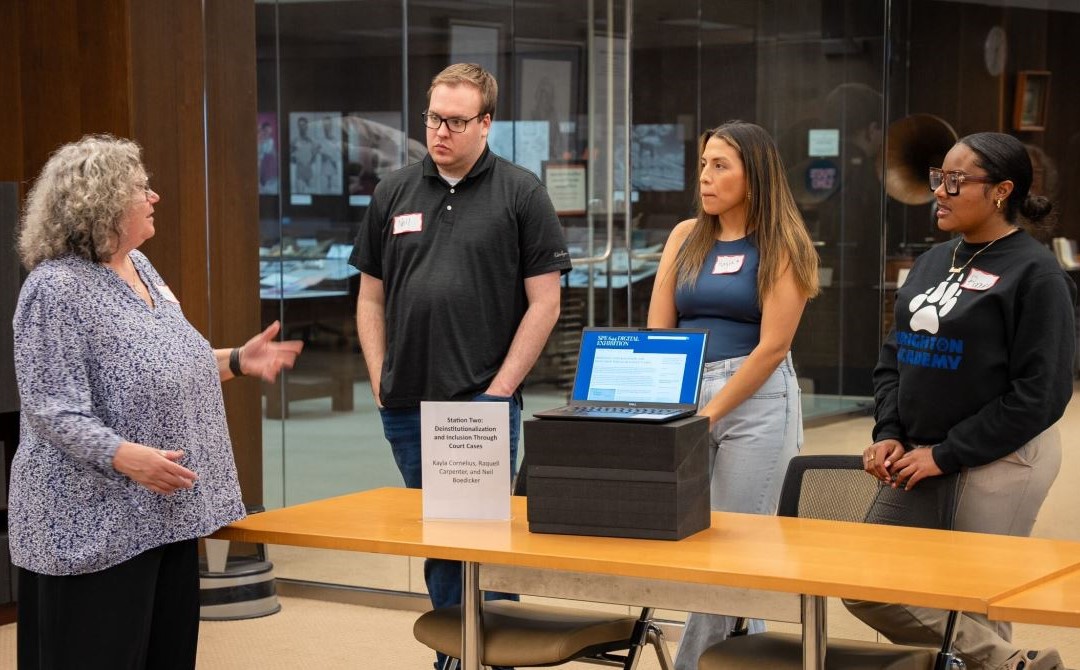
White says the primary source materials provided the students with particularly rich and informative records, in part due to Syracuse University’s long history as a vanguard for disabled individuals and a leader in inclusive education and disability rights. Today, the Center on Disability and Inclusion continues the legacy of the Center on Human Policy, founded in 1971 by Dean Burton Blatt, a groundbreaking disability rights scholar. Blatt and other individuals at the University were involved in disability rights lawsuits during the 1970s and developed language surrounding the creation of special education law. All of that history—and dozens of associated original documents and artifacts—are preserved for viewing and research.
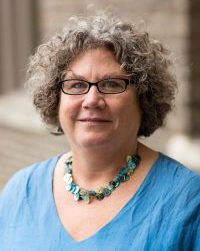
“We at Syracuse have really reconceptualized how to think about people with disabilities, especially intellectual disabilities. The University is known for its forefront advocacy on inclusive education and all that work is evident in the archives,” White says. “There are so many things to investigate and so many lessons we can get from this; it’s a gold mine waiting to be explored.”
A former special education teacher, White now researches national and international special education policy and inclusive education as a human right. But she “was always interested in how law and policies could be applied to different people under different circumstances. I noticed how some students could be placed in segregated or self-contained classrooms while others were in resource rooms and were more integrated. Very little was different about their learning profiles other than their race or socioeconomic profile. I wondered why, if some students had more significant disabilities, they were held to very few or no academic standards.”
Based on her experience as both a doctoral student and a teacher, White says, “I had a pretty strong sense of the racial and economic injustice inherent in U.S. society and always considered inclusive education a civil rights issue.” Yet it was her experience in a Fulbright teacher exchange program in the Slovak Republic and later work for the Landmine Survivors Network for the United Nations Convention on the Rights of People with Disabilities, that cemented her perspective of inclusive education as a broader human rights issue.

‘Fantastic’ SCRC Process
The time she spent examining materials and working with staff at SCRC “was a fantastic process all around,” White says. “Sometimes, an artifact had very little to do with what I was interested in—Syracuse University’s role in deinstitutionalization, inclusive education and disability activism—but there were many ‘aha’ moments that sent me down rabbit holes and that was a lot of fun. The discovery of so many amazing contributions of folks affiliated with the University was the best part of this fellowship. And the staff were phenomenal; they had great insights. I came into this knowing little about archival work and hadn’t done any myself, but they were so gracious and so helpful.”
SCRC staff were also readily available to the graduate students, discussing their readings, helping them categorize materials and offering advice on how to formulate the exhibit, White says. Jana Rosinski, instruction and education librarian, was involved with the class almost every time they met. Patrick Williams, humanities librarian and digital and open scholarship lead, helped them create the digital exhibit.
Gratifying for Students
The experience of using primary source documents and finding so much relevant information to work with was gratifying for the students, two of the class members say.
Sierra Eastman ’20, G’25 teaches math to seventh- and eighth-grade students in the Syracuse City School District. Her review of archive materials helped her gain a better understanding of the perspectives of people with disabilities, Eastman says. “I have students with various disabilities in my classes and I wanted to get an understanding of them that I didn’t have as an able-bodied person. We tried to put ourselves in their shoes and see how we could make sense of how this [institutionalism] happened, how they were personally impacted and the larger societal reasons that it occurred.”
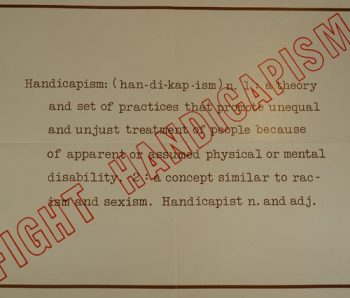
Kionna Morrison G’24 is an algebraic reasoning teacher in the Syracuse City School District who completes the inclusive special education (grades 7-12) program this month as a Project IMPRESS scholar. She wanted to understand the experiences that people of color, especially Black children, had in institutions for the intellectually disabled. “I could see how disability, institutionalization and racism can be traced to the pre-Civil War and Reconstruction eras. I gained insight on how certain bodies have been consistently institutionalized. Now, I want to continue to learn about the intersectionality between race and special education and how people from multiple marginalized communities navigate their experiences with disability,” she says.
White believes there has been a significant change in the public’s views on disability, and particularly on intellectual disability, in recent years. “The U.S. has much farther to go in terms of changing society’s perception of disability, intellectual disability and breaking down barriers for any group of marginalized people,” she says. “We need to recognize how far we’ve come in changing attitudes in society, making places accessible, and providing higher education opportunities for disabled people, such as Syracuse University’s InclusiveU program. That’s a good start to thinking differently. Although attitudes are something that we still have to change, the civil and human rights of people with intellectual disabilities are routinely denied in the U.S. and worldwide, and I hope that this project helps shed some light on the history of the continuing fight for disability rights.”
